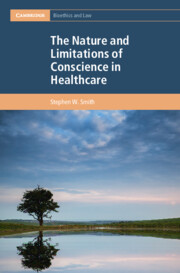Refine search
Actions for selected content:
127 results
Chapter 11 - The Word of Reconciliation
- from Part III - Hegelian Theodicy
-
- Book:
- Reason and the Good in Leibniz, Kant and Hegel
- Published online:
- 06 February 2026
- Print publication:
- 12 March 2026, pp 243-272
-
- Chapter
- Export citation
Chapter 4 - From Optimism to Autonomy
- from Part II - Kantian Theodicy
-
- Book:
- Reason and the Good in Leibniz, Kant and Hegel
- Published online:
- 06 February 2026
- Print publication:
- 12 March 2026, pp 67-95
-
- Chapter
- Export citation
Chapter 4 - Dante’s Epic (Cantos XIV–XVIII)
-
- Book:
- Dante's Political Philosophy
- Published online:
- 20 February 2026
- Print publication:
- 12 March 2026, pp 133-164
-
- Chapter
- Export citation
Conscience and Character
-
- Journal:
- Journal of Anglican Studies , First View
- Published online by Cambridge University Press:
- 11 February 2026, pp. 1-20
-
- Article
- Export citation
9 - A Theological Interpretation of the Declaration of Independence
-
-
- Book:
- The Cambridge Companion to the Declaration of Independence
- Published online:
- 18 December 2025
- Print publication:
- 22 January 2026, pp 123-141
-
- Chapter
- Export citation
14 - Freedom of Religion
-
-
- Book:
- The Cambridge History of Rights
- Published online:
- 31 January 2026
- Print publication:
- 19 January 2026, pp 340-367
-
- Chapter
- Export citation
John Henry Newman and the Existence of God
-
- Journal:
- New Blackfriars / Volume 107 / Issue 1 / January 2026
- Published online by Cambridge University Press:
- 18 November 2025, pp. 75-90
- Print publication:
- January 2026
-
- Article
-
- You have access
- Open access
- HTML
- Export citation
The Creative Role of Virtue in Conscientious Objection: A Thomistic Perspective
-
- Journal:
- New Blackfriars ,
- Published online by Cambridge University Press:
- 18 November 2025, pp. 1-14
-
- Article
- Export citation

Less Than Victory
- American Catholics and the Vietnam War
-
- Published online:
- 16 October 2025
- Print publication:
- 11 September 2025
5 - Conscientious Provision and Objection
-
- Book:
- The Nature and Limitations of Conscience in Healthcare
- Published online:
- 12 September 2025
- Print publication:
- 02 October 2025, pp 82-109
-
- Chapter
- Export citation
1 - Introduction
-
- Book:
- The Nature and Limitations of Conscience in Healthcare
- Published online:
- 12 September 2025
- Print publication:
- 02 October 2025, pp 1-14
-
- Chapter
- Export citation
8 - Conclusion
-
- Book:
- The Nature and Limitations of Conscience in Healthcare
- Published online:
- 12 September 2025
- Print publication:
- 02 October 2025, pp 173-185
-
- Chapter
- Export citation
3 - Respecting Conscience
-
- Book:
- The Nature and Limitations of Conscience in Healthcare
- Published online:
- 12 September 2025
- Print publication:
- 02 October 2025, pp 39-61
-
- Chapter
- Export citation
6 - Complicity and Corporate Conscience
-
- Book:
- The Nature and Limitations of Conscience in Healthcare
- Published online:
- 12 September 2025
- Print publication:
- 02 October 2025, pp 110-151
-
- Chapter
- Export citation
2 - Conscience from First Principles
-
- Book:
- The Nature and Limitations of Conscience in Healthcare
- Published online:
- 12 September 2025
- Print publication:
- 02 October 2025, pp 15-38
-
- Chapter
- Export citation
7 - Regulating Claims of Conscience
-
- Book:
- The Nature and Limitations of Conscience in Healthcare
- Published online:
- 12 September 2025
- Print publication:
- 02 October 2025, pp 152-172
-
- Chapter
- Export citation

The Nature and Limitations of Conscience in Healthcare
-
- Published online:
- 12 September 2025
- Print publication:
- 02 October 2025
7 - “Outweighed by the Destruction”: April 1970–December 1971
-
- Book:
- Less Than Victory
- Published online:
- 16 October 2025
- Print publication:
- 11 September 2025, pp 214-250
-
- Chapter
- Export citation
Chapter 9 - A Sense of Duty
- from Part IV - Virtues of Indirect Caring
-
- Book:
- Attention to Virtues
- Published online:
- 25 July 2025
- Print publication:
- 14 August 2025, pp 216-237
-
- Chapter
- Export citation
Peut-il y avoir agentivité morale sans sentience ?
-
- Journal:
- Dialogue: Canadian Philosophical Review / Revue canadienne de philosophie / Volume 64 / Issue 1 / April 2025
- Published online by Cambridge University Press:
- 07 July 2025, pp. 65-79
-
- Article
-
- You have access
- Open access
- HTML
- Export citation
